Jennifer Thomson's Blog, page 23
September 7, 2013
Never give up - The one mantra every writer should have
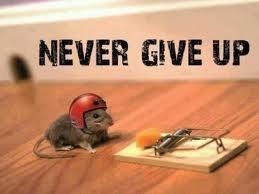
Tenancious wee guy - "Nobody is stopping me from getting that cheese."
Of all the mantras that writers have, that's probably the
most important because most of the time your work won't get picked up right
away. That was the case with How Kirsty Gets Her Kicks.
The road to publication has been a long and winding road for
the short novel I wrote 3 years ago.
Back in March 2010, I saw a snippet of news in Writer's News
magazine about a publisher looking for women to write "violent revenge
fiction." I cut it out and filed it away for later. Up until that point,
barring a few published short stories I'd stuck to fiction.
A few months later, this image came into my mind of a
one-legged woman (I didn't give her a prosthetic leg deliberately to make her
different; she came to me that way) standing over a man who had a stiletto heel
embedded into his skull and Kirsty was born. I started writing, asking myself
the question's
"How did she come to
be in this position?"
"Who was Kirsty?"
The answers came quickly - she was a Glasgow barmaid and she'd just killed one of
Jimmy McPhee's goons after he'd got a bit too handsie. Now I had my story.
Kirsty had to go on the run because McPhee would come after her and to protect
herself she'd steal the gun he had in his safe and his cash.
Within a few months, I'd written the book and sent it off to
the publisher. A few weeks later, I had a publishing contract. Cue happy dance
and the best Christmas present ever.
Hey, that sounds easy. But then as the publication date
loomed, I'd heard nothing. Received no edits, so I got in touch and was told
publication had been delayed and it wouldn't be out until later. A few months
later and it was the same story.
Almost a year later, came the bombshell. The person who
commissioned the book got in touch. They were leaving the publisher and taking
the imprint with them and they hoped to set up on their own. The little hope I
had was crushed when I never heard from them again.
The book never came out and after some toing and froing, I
realised it never would. The two years on my contract expired and my hopes and
dreams came to an end.
In the meantime, I wrote a self help title, my zombie novel
Dead Bastards and Hell To Pay, the first in a series of books I'd
called Die Hard for Girls. I also finished the second novella in the Die Hard
for Girls series.
I never gave up on Kirsty though. I wanted people to read
her story. She was a real person to me. One day, I even thought I saw her.
I had strong interest from one publisher who later decided
the book was too short. Another wanted me to add to the text and they'd look at
it again. Another said it wasn't the kind of book they published, but their
"friend" would format it as an eBook if I gave them 500 pounds.
Obviously, I declined.
A month ago, it was turned down by one of Stephen King's
publishers. I'd sent it off in the early hours of the morning to avoid the
"I'm not worthy" pull that'd prevent me from pressing the dreaded SEND button.
The comments about why it wasn't right for them - that it
was gonzo and over the top, Tarantino like - sounded more like endorsements to
me than admonishments.
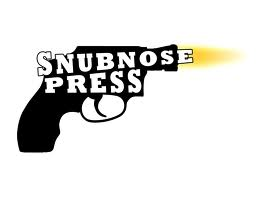
Snubnose Press must have thought so, because they
offered me a contract which I duly accepted, delighted to be onboard with such
a classy outfit that are kicking down crime fiction doors.
Kirsty's damn pleased too. She's gonna get her kicks and
boy, is she gonna have a ball. Hey, she's even gonna jump out a cake. You'll
need to read the book to find out why.

You'll need to wait to read why Kirsty jumps out of a cake:)

Published on September 07, 2013 13:02
Are the magnets in stands and cases ruining your tablet?

Like most people, I love gadgets and when my OH bought me a Google Nexus
tablet, I was chuffed to bits.
The Nexus is a great piece of kit for a writer. There's plenty of free apps
that are great for writing like notebooks where you get to create your own
unlined or lined notebooks with different covers and numbers of pages. That way
you can work on multiple projects at once and gmail them to yourself or send to
other apps.

Need to see a copy of the magazine you want to write a piece for? No problem,
the Google Play store has lots of them. For the cost of the cover price you can
have the publication uploaded to your tablet in minutes.
The Twitter app also allows you to send tweets from multiple accounts at once.
Ideal when like me you've got a specific zombie account (hey, I love zombies and
The Walking Dead) and a separate one for your writing and personal stuff.
Naturally I wanted to protect my new gadget from damage. So I shopped around
for a stand.
That's when my problems started. The first one I bought, a black Carbon Fibre Print PropUp Stand Case Cover with integrated stand function
and magnetic sleep sensors looked great.

Then I put my tablet in it. At first everything was okay. Then my cursor went
haywire. I couldn't seem to copy and paste no matter what app I used. I thought
my tablet was broken.
I shut it down. Took it away from the stand. Then I restarted it and the Nexus
worked fine. It didn't take a genius to work out the stand was the problem and
more to the point the magnet in the stand that activates the sleep function on
the tablet.
I sent it back for a refund.
Then I bought the IPEVO PadPillow Lite Stand. It looked like an adjustable
pillow. It wasn't until I received the pillow that I discovered the magnets.
When I tried it with my tablet it was the same story. The cursor went crazy. My
tablet was unusable. This time it took the tablet longer to recover. I actually thought it was broken forever.

I'm still on the look out for a stand or case, but from now on I'll avoid the
ones with magnets. They nearly wrecked my tablet and they could damage yours.

Published on September 07, 2013 10:21
August 27, 2013
Two week promotion for Hell To Pay on Kindle
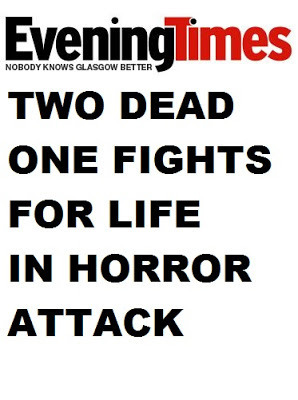

Find out how the story ends -
For a limited time only, Hell To Pay is available on Kindle for
99p on Amazon.co.uk
$1.54 on Amazon.com
99cents on Amazon.ca
Grab the novella that's been labelled kick lit?

Published on August 27, 2013 19:42
August 4, 2013
Writers, what to do when you get a bad review

The advice from other authors is to ignore reviews, but it's hard to ignore them especially when your publisher keeps going on about how reviews get you sales. When you get a really bad, withering review that makes you think you should never inflict your writing on the public ever again, you just want to dive under that duvet and never come out again.
But, is getting a stinker of a review really so bad? Well, yes it is, but here are some things to think about before you think of chucking this writing game in.
It helps if you write the answers down. That way your brain absorbs them and you can move on from the bad review, because you've got to move on so you can get on with writing.
Another great thing to do is answer these questions as though it's someone else's book that got the bad review; one you've read and know well. I use a similar technique in my bullying book, Bullying A Parent's Guide, and to deal with my social phobias. Trust me, it works.
First off, look at the review -

1. Has the reviewer said anything constructive, that you can be used to improve the author's writing? For instance, a reviewer might spot a continuity error or that a writer over does speech tags.

2. Do they talk about themselves in the review? Good reviewers don't talk about themselves, no; they talk about whatever they're reviewing. The over-use of I is a sign of an ego. The reviewer’s saying, "Look at me, look at me" and not here's a review.
3. Look at their other reviews. What kind of things do they say? Are they constructive in their criticism or venomous? Do they always seem to give good reviews to the top publishing houses, whilst slating self-published books or ones from smaller publishers?
I got a reviewer who admitted to not reading all of another book they reviewed because they "knew how it'd end." Why didn't he just read it then to see if he was right?
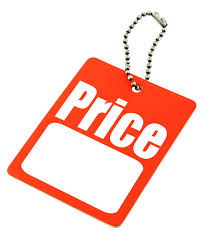
Does a good review come with a price tag?
4. Do they review for a site that charges for some books to feature on the site? I call these subsidy reviews. How likely are you to get a good review if you don't pay and are not with one of the big publishers who send them books? Mmm, we wonder.

5. Did the right person review the book?
There are books that have popular cross appeal, like books by Stephen King, but most books have a specific readership.
I wrote Hell To Pay as an escapist piece of fiction for women who were sick of seeing women being the victims of appalling crimes like rape and not getting justice. I gave the book the sub-title Die Hard for Girls.
A male reviewer on a well known book review website that charges some books up to £145 to be featured, panned the book calling it "reverse misogyny" because my heroine Nancy got revenge on the men who raped her and murdered her parents. In fiction, clearly just like real life, women are allowed to be victims, but woe betide them if they fight back.
I disregarded his comment because the book's not aimed at men who think women should behave like they're in a Jane Austen novel. It's aimed at modern women who are just as likely to punch a mugger as hand over their handbag. I make no apologies for that.

Other things to consider -
1. Look at all your reviews. What have other reviewers said - reviewers who aren't family or friends? If every reviewer hates your book, then you should start to worry.
2. Have you won any writing awards? Placed in any contests? Had good reviews on sites like youwriteon.com or authonomy?
If you have, how can your writing be as bad as that review makes you think it is?
3. Do you have a history of getting published? Relive your successes.
Now, that feels better.
4. Look at reviews top authors have got on Amazon. Are they all five star glowing reviews? I doubt it.
Look at all of the one star reviews for authors who get advances in the hundreds of thousands or even the millions. Stephen King's got one star reviews, so has Harlan Coben and Frederick Forsyth. In the case of Day of the Jackal, one reviewer said "Derivative and lightweight. Another wannabe Ian Fleming best forgotten."
Now get writing. The worst thing you can do after a bad review is to dwell on it.

Published on August 04, 2013 16:51
August 1, 2013
Isn't it about time women got justice in life and fiction?

Someone I know very well and care about very deeply, was
walking to her car in broad daylight just as she'd done so many times before.
She'd just put in a 12 hour shift at the hospital where she works as a nursing
assistant and was so tired she'd trouble putting one foot in front of the other.
She was desperate to get home because her cat hadn't come back the night before
and she was worried about him.
She was about 5 steps away from her car when she heard a voice.
"Lady, I think you dropped something."
She didn't think she had, but turned around anyway.
When the fist pummelled into her face she fell and hit her head on the
pavement. Too dazed to get up, she could do nothing as the man dragged her into
bushes. She was raped and beaten so badly even her own mother didn't recognise
her.
She'd scratched her attacker, so she had his blood under her fingernails, but
there was a mix up at the forensics lab and the only sample they had got lost.
The police made an arrest, but they let the man go because his lawyer argued
that her identification of him wouldn't stand up in court because she'd been
concussed when she’d fell.
Cathy (not her real name) is not alone in not getting justice.
In the UK,
the prosecution rate for rapists is pathetically low. According to official
figures in the UK
for 2012, only one in 30 victims (the majority of them women) can expect to see
their attacker brought to justice. In 2010, Jane Clough was murdered by former
boyfriend Jonathon Vass who'd been released on bail whilst awaiting trial for
raping her several times.
In the USA,
it's more difficult to determine, but it wouldn’t surprise me if most women who
are raped don’t get to see their attacker convicted.
I wrote Hell To Pay because I wanted to see an everyday woman turn the table on
her attackers after the law failed her. I was sick of seeing strong, brave
women like my friend subjected to the vilest of assaults and left with victim's
guilt. Cathy once said to me that the police asked her why she didn't ask a
male colleague to walk her to her car. The question upset her. She felt as
though they were blaming her for being attacked.
In time, she started to think they were right.
In my friend's case she never got justice. She never saw the man (if anything
that can be called a man could do such cruel things aimed at achieving the
maximum hurt and degradation to another human being) in the dock and never got
to tell her story to a court.
My Die Hard for Girls books come with a guarantee: that
women will always get justice and the bad guys will be punished. Maybe, just maybe, one day
that will happen in real life.
Note - this piece first appeared at http://diehardforgirls.weebly.com/1/post/2013/07/isnt-it-about-time-women-got-justice.html
Disclaimer: The Die Hard for Girls books are pure, escapist fiction and do not in any way advocate violence.

Published on August 01, 2013 14:37
July 28, 2013
An open letter from an author to book reviewers…
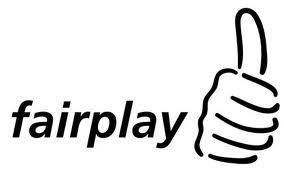
When you're an author, there's nothing more upsetting than getting bad reviews.
When it's from someone who just didn't like your book and gives perfectly valid reasons, you
can accept it. But when it comes from someone who gives unreasonable reasons,
beyond the author's control for not liking your book, it seems unfair.
1. It's unfair to mark books down because of how much they cost because despite
what people think, authors don't make a lot of money per book and unless it's
self-published on Kindle they don't get to set the price either.
FACT - Amazon get as much as 70 percent off the cover price of a paperback or
hardback book. Yes, 70 percent. That means if the book sells for 7 dollars they
pay 2 dollars 21 cents for a book. If it sells for 7 UK pounds, they only pay 2 pounds 21
pence.
FACT - Bookshops can also get discounts of around 50 per cent. Some may get
more.
At a standard ten percent royalty rate, that means writers get 21 cents or 21
pence a book. It's not a lot for all the work that goes into writing a book.
These calculations apply to traditional, royalty paid publishing.
Self-published authors also face deductions. On Amazon, those who use Kindle
Direct, either get 70 percent or 35 percent royalties on the price of their own book.
And there may be tax to pay too.
2. Pay attention to genre.
It's unfair to read say a romance novel and then
give it a poor rating because you don't like romance novels. Steer clear of
genres you hate. An author pal got a stinker of a 2 star review on Amazon
because he'd written a book set on a spaceship and the reviewer said they hated
the fact it was set on a spaceship.
I got a one star review for Hell To Pay that the reviewer posted everywhere. When I looked at all the books she read they all seemed to be erotic fiction. My books is billed as a revenge thriller and has a bloody hand on the cover and not a naked man:) In no terms could it be described as erotic fiction.
3. Before you leave a review, look at how many pages a book has.
One of the
reasons someone gave me a bad review for Hell To Pay, was they said it was a
short novel. The book is a short novel - it's a novella - and if you think it's
too expensive see point one about traditionally published authors not setting
the price of their own books.
4. It's unfair to give a bad review because you're from the UK and the book is written in
American English, or vice versa. A correct spelling in the UK is a wrong spelling in the USA.
Fact - Most of the big publishing companies don't even bother to change
American English to UK English when they sell books in the UK. This means
that UK
readers can read books in both their English and American English. The opposite
doesn't seem to be true, but that's not the author's fault.
5. Look at where the books are set and expect characters to use national
phrases.
For instance, in Scotland
where I live, we say "no" instead of not. As in "that's no
fair" and "I'm no doing that."
This little quirk makes the way people talk authentic without going overboard.
In Hell To Pay I used that phrase a few times and I just know people will read it (like
one reviewer) and say it's a spelling mistake. It isn't.
To sum up...
In most cases, reviewers have paid their money or have devoted their time to reading a book they were given to review, and are entitled to their
opinion, but there has to be an element of fairness. And, I believe that most reviewers are fair.
If I hadn't a long history
of publication, I'd have been totally devastated by the withering review I got.
But other authors might have been so crushed they'd never have written anything
again and readers would miss out on their next book that even the harshest
reviewers would call a gem.
Reviewers, authors love you, but only when you play fair.

Published on July 28, 2013 19:57
July 24, 2013
Watch the trailer for Hell To Pay...Glasgow's about to get meaner
Hell To Pay's official release date is Friday July 26th, 2013 when it will be available on paperback and on Kindle...


Published on July 24, 2013 16:58
July 22, 2013
It's time self-published authors were more honest
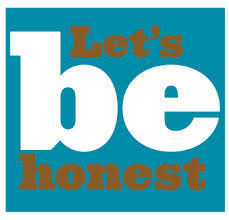
You'd need to have been on another planet not to notice the rise of the self-published or indie author. Their stories are everywhere and make selling books sound, well easy –
"I sold a thousands books a day using social media."
"Why I'm turning my back on a big money book deal to stay indie."
"I tweeted my way to hundreds of book sales a day."
Whilst all these stories inspire indie authors and those who are thinking of going indie (like me) they also make those of us who don't sell thousands of books a day (whether we're self-oublished or traditionally published), feel like garbage.
We use the social networks, we blog, we write promo pieces. And, we wrote good books. So, what's wrong with us or our books?
Probably nothing. So, why are other authors succeeding whilst we're not?
Part of the problem is that although I've no doubt these bestselling authors work extremely hard, they are not always completely upfront about the things they do to "sell" so many books or the fortune they spend.
Here are 3 things I've discovered -
1. Writers counting free books as sales. When something's given away, it's a freebie not a sale. If I see someone giving out free candy bars, I grab one. It doesn’t mean I’m gonna eat it, or in the case of free books, read it.
2. Authors are spending a fortune on publicists. One author I read about spent 40 thousand dollars on her publicist. Compared to what others spend, that's chump change.
3. Authors spending a ton of money on advertising, including fees to get on book blogs. I was sad to see that there seems to be a growth industry in prising money out of authors’ hands. This is often money they can’t afford.
What this post isn’t, is me having a go at indie writers who write great books that sell and work hard to get those sales. What this post is however, is a call for successful self-published authors to be more upfront about how much money and time they spend to make the Amazon bestseller list.
Sadly, I know of too many authors who have grown disillusioned because they’re not the next John Locke, the first self-published author to sell over one million eBooks on Amazon.com. As well as writing what I’m told are great books, he spent a bundle on advertising to sell books too.

Published on July 22, 2013 15:15
July 6, 2013
The angry writer makes a comeback...and she's livid.

When you're not being published you look at writers who are and think their life must be wonderful. They've made it. Their book's out there being coveted and they're being told how wonderful they are. They're raking in the cash - go on, you in the know; chortle away at that one.
Then you become one of them and realise life can still be, well not to put it to politely, shit.
So far (I'm expecting more rotten tomatoes) here's the lowdown on my publication hell -
Amazon getting the listing wrong on ALL their sites, so all of my books wouldn't appear on my Amazon author page. I had to contact those sites individually - you can't just contact one, you've got to contact them all - to get the details changed. See
The book coming out a month early but the Kindle version not following suit. Result - losing would be sales and losing out on potential readers.
Getting one star ratings from people who complained that the book "didn't contain enough romance."
It's a crime thriller with a bloody handprint on the cover. There's no mention of romance.
Getting two one star ratings on Goodreads from someone who hadn't read the book. One rating was for the Kindle version that isn't even out yet. I contacted Goodreads and they didn't seem to think this was a big deal. It wouldn't surprise me if there's going to be an Amazon review scandal with people leaving malicious ratings and reviews.
My publisher saying my book came out at the wrong time "for the word to have got yet" and the book missed out in being in "some of the trade catalogues" where so many bookstores order their books, so there were hardly any orders.
A writer with the same publisher wanting to exchange likes on Facebook, then pulling out and sending me a sniffy message saying "I don't like your cover." A bloody handprint for a crime novel - why didn't I have a picture of a fluffy bunny? Eh, it's not a book like Living Cruelty Free.
To top it all, I've spent hundreds of hours promoting this book, doing things like setting up a website, a Facebook page, blogging, getting reviews and running a Twitter account, as well as putting excerpts up on Wattpad and Scribd and I'm starting to wonder what the hell is the point? The last time I wrote anything was this blog post. Yet, I've got a heap of writing projects that I could be doing rather than promoting a book I seem to be more invested in than my publisher and fixing Amazon screw ups.
Then today I got a call from my dad to tell me they'd seen a book with the exact same cover in Waterstones. I'm now off to scream into a bucket.

Published on July 06, 2013 20:10
The angry writer makes a comeback...and she'd livid.

When you're not being published you look at writers who are and think their life must be wonderful. They've made it. Their book's out there being coveted and they're being told how wonderful they are. They're raking in the cash - go on, you in the know; chortle away at that one.
Then you become one of them and realise life can still be, well not to put it to politely, shit.
So far (I'm expecting more rotten tomatoes) here's the lowdown on my publication hell -
Amazon getting the listing wrong on ALL their sites, so all of my books wouldn't appear on my Amazon author page. I had to contact those sites individually - you can't just contact one, you've got to contact them all - to get the details changed. See
The book coming out a month early but the Kindle version not following suit. Result - losing would be sales and losing out on potential readers.
Getting one star ratings from people who complained that the book "didn't contain enough romance."
It's a crime thriller with a bloody handprint on the cover. There's no mention of romance.
Getting two one star ratings on Goodreads from someone who hadn't read the book. One rating was for the Kindle version that isn't even out yet. I contacted Goodreads and they didn't seem to think this was a big deal. It wouldn't surprise me if there's going to be an Amazon review scandal with people leaving malicious ratings and reviews.
My publisher saying my book came out at the wrong time "for the word to have got yet" and the book missed out in being in "some of the trade catalogues" where so many bookstores order their books, so there were hardly any orders.
A writer with the same publisher wanting to exchange likes on Facebook, then pulling out and sending me a sniffy message saying "I don't like your cover." A bloody handprint for a crime novel - why didn't I have a picture of a fluffy bunny? Eh, it's not a book like Living Cruelty Free.
To top it all, I've spent hundreds of hours promoting this book, doing things like setting up a website, a Facebook page, blogging, getting reviews and running a Twitter account, as well as putting excerpts up on Wattpad and Scribd and I'm starting to wonder what the hell is the point? The last time I wrote anything was this blog post. Yet, I've got a heap of writing projects that I could be doing rather than promoting a book I seem to be more invested in than my publisher and fixing Amazon screw ups.
Then today I got a call from my dad to tell me they'd seen a book with the exact same cover in Waterstones. I'm now off to scream into a bucket.

Published on July 06, 2013 20:10



